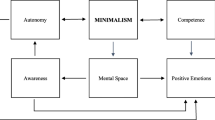Abstract
The field of business ethics has shown little attention to the dynamics of memory in maintaining moral character. Yet memory is a complex process that involves the repression of some experiences in order to protect the moral integrity of the personality. Without the capacity to repress what one's moral conscience would not accept, the mind can be overtaken by neurotic ambivalence and moral confusion. In the context of business competition, where the pressures for potential gains and losses can be immense, long repressed desires can receive renewed strength resulting in a weakening of moral constraint.
In this essay, I use the psycho-analytic theory of repression to investigate the complex, psychological vicissitudes of human memory. The theory of repression is a particularly powerful tool to investigate the moral implications of memory because memories which are repressed – i.e., forbidden consciousness – are done so at the behest of the individual's moral ideals. Experiences that offend these ideals or threaten the integrity of the ego can be repressed. Repression, then, is an infallible index of moral judgement.
I will apply the theory of repression to the characters in and story line of Arthur Miller's play Death of a Salesman to elucidate the relationship between memory and ethics in business. Death of a Salesman is well suited for this purpose because the memories of the main characters are central to the play and are inextricably linked to the moral challenge competition in business poses.
Similar content being viewed by others
References
Feldman, S. P.: 2002, Memory as a Moral Decision: The Role of Ethics in Organizational Culture (Transaction, New Brunswick, NJ).
Freud, S.: 1953–1964, The Standard Edition of the Complete Psychological Works of Sigmund Freud, James Strachey et al. (eds.) (Norton, New York).
Freud S.: 1896, 'Extracts from the Fliess Papers (Letter 52)', Standard Edition (Norton, New York).
Freud, S.: 1907, 'Obsessive Actions and Religious Practices', Standard Edition (Norton, New York).
Freud, S.: 1908, '“Civilized” Sexual Morality and Modern Nervousness', Standard Edition (Norton, New York).
Freud, S.: 1909, 'A Note on Obsessional Neurosis', Standard Edition (Norton, New York).
Freud, S.: 1911a, 'Formulations on the Two Principles of Mental Functioning', Standard Edition (Norton, New York).
Freud, S.: 1911b, 'Psycho-Analytic Notes on an Autobiographical Account of a Case of Paranoia', Standard Edition (Norton, New York).
Freud, S.: 1912, 'The Dynamics of the Transference', Standard Edition (Norton, New York).
Freud, S.: 1913, 'The Disposition to Obsessional Neurosis', Standard Edition (Norton, New York).
Freud, S.: 1914, 'Remembering, Repeating and Working Through', Standard Edition (Norton, New York).
Freud, S.: 1915a, 'Repression', Standard Edition (Norton, New York).
Freud, S.: 1915b, 'The Unconscious', Standard Edition (Norton, New York).
Freud, S.: 1921, 'Group Psychology and the Analysis of the Ego', Standard Edition (Norton, New York).
Freud, S.: 1923, 'The Ego and the Id', Standard Edition (Norton, New York).
Freud, S.: 1924, 'Neurosis and Psychosis', Standard Edition (Norton, New York).
Freud, S.: 1925, 'A Note Upon the “Mystical Writing-Pad”', Standard Edition (Norton, New York).
Freud, S.: 1926, 'Inhibitions, Symptoms and Anxiety', Standard Edition (Norton, New York).
Freud, S.: 1927, 'The Future of an Illusion', Standard Edition (Norton, New York).
Freud, S.: 1928, 'Dostoevsky and Parricide', Standard Edition (Norton, New York).
Freud, S.: 1930a, 'Civilization and Its Discontents', Standard Edition (Norton, New York).
Freud, S.: 1930b, 'The Interpretation of Dreams', Standard Edition (Norton, New York).
Freud, S.: 1937, 'Analysis Terminable and Interminable', Standard Edition (Norton, New York).
Freud, S.: 1940, 'An Outline of Psycho-Analysis', Standard Edition (Norton, New York).
James, W.: 1890 (1950), Principles of Psychology (Dover, New York).
Laplanche, J. and J. B. Pontalis: 1967, The Language of Psycho-Analysis (Norton, New York).
Miller, A.: 1958, Death of a Salesman (Viking, New York).
Rieff, P.: 1979, Freud: The Mind of the Moralist (University of Chicago Press, Chicago).
Rieff, P.: 1981, 'By What Authority: Post-Freudian Reflections on the Repressive as Modern Culture', in J. P. Diggins and M. E. Kann (eds.), The Problem of Authority in America (Temple University Press, Philadelphia).
Author information
Authors and Affiliations
Rights and permissions
About this article
Cite this article
Feldman, S.P. Weak Spots in Business Ethics: A Psycho-Analytic Study of Competition and Memory in Death of a Salesman . Journal of Business Ethics 44, 391–404 (2003). https://doi.org/10.1023/A:1023619917469
Issue Date:
DOI: https://doi.org/10.1023/A:1023619917469




